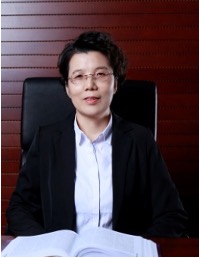Research on High-throughput
Preparation Technology of Irradiated Steel for Advanced Nuclear Reactor
Yan Qingzhi*, Cao Zhengyu , Zhang Jun,Wang Yu, Zhang Xiaoxin
Institute of nuclear materials engineering, Beijing University of
science and technology, Beijing, China
ABSTRACT: The high temperature,
high corrosion, high radiation and high stress environment of advanced nuclear
reactor is a severe challenge for reactor core cladding materials, so the development
of high performance stainless steel cladding materials is always a research
hotspot around the world. The research and development of new materials usually
follows the traditional sequential iteration method. Especially for metal
materials, the traditional research and development path includes composition
design - material preparation (smelting and casting, powder metallurgy) -
thermal mechanical treatment - performance analysis - optimization -
engineering application and so on. The composition is the decisive factor of
microstructure and performance, and the optimization of composition and process
needs to be evaluated by the final material performance. The long Research and
development cycle and high cost have seriously restricted the development and
application of new materials. The composition of alloy elements in clad steel
is complex, and the addition of different alloy elements requires corresponding
heat treatment system, and the research and development cycle is longer.
Therefore, it is very important to use efficient experimental methods instead
of traditional methods to accelerate the research of clad steel. In this paper,
a high-throughput vacuum induction melting continuous casting system is
proposed and developed, which can obtain 24 kinds of ingots with different
compositions in one heat, and obtain 240 kinds of samples with different
structures by multi-stage temperature heat treatment, which greatly improves
the efficiency of the experiment. The system adopts vacuum induction melting,
material ration, multi position high flux casting, high heating speed and
strong temperature controllability.
Keywords: Materials genetic engineering; nuclear reactor cladding materials; high throughput preparation; smelting and casting

Yan Qingzhi, female, born in 1966, Professor & Ph.D Supervisor of University of Science and Technology Beijing,the chief scientist of ITER-National Magnetic Confinement Fusion Program. She Prof. Yan’s research experience covers a range of topics in preparation & application science of advanced materials used in extreme environments such as nuclear energy and high-speed rail, including toughening tungsten, castable ODS-steels and brake pad. As the Secretariat Chair of the International Conference on Fusion Reactor Materials, she organized and undertook the 16th International Conference on Fusion Reactor Materials held in 2013 in Beijing. Up to now, Yan has published 165 refereed journal papers and 22 authorized patents.